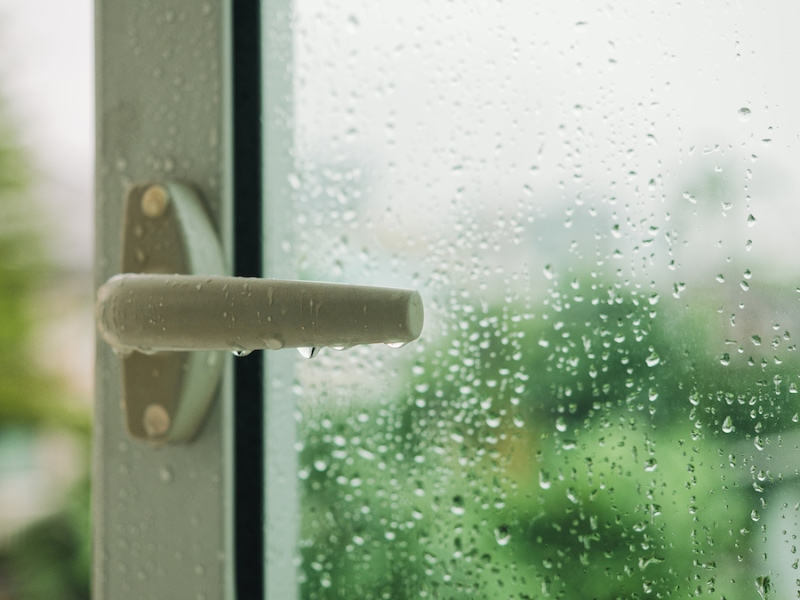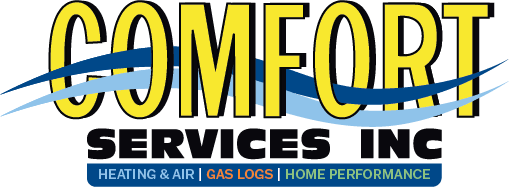Why You Need Whole-House Humidity

When indoor plumbing became more popular in the 1940s, a whole new level of comfort and convenience began for homeowners. However, with that convenience came new challenges. One of those challenges is controlling humidity levels so they remain safe and comfortable inside your home.
According to the Mayo Clinic, keeping your home’s indoor humidity levels between 30 and 50 percent is ideal.
Today, the combination of indoor plumbing as well as seasonal humidity can contribute to issues such as mold growth. Our professionals at Comfort Services want to share some tips on controlling humidity and humidity control consequences in your Southern Pines home.
- Kitchen Considerations. When cooking in your kitchen, you will notice a fair amount of steam being released into the air. To reduce humidity in your kitchen, remember to cover your pots while cooking and use your range hood ventilation system liberally.
- Laundry Tips. Make sure your dryer is properly vented to the outside so all that moisture is deposited outdoors. Better yet, plan to hang things like sheets, towels, and other larger items on an outdoor clothesline on warm days.
- Bathroom Habits. By taking shorter showers and making sure your bathroom vents are turned on, you can minimize the amount of moisture released into your home. Consider exploring exhaust fans that turn on automatically when certain humidity levels are reached.
Be sure all exhaust fans in the kitchen and bathrooms vent to the outside, not into your attic.
- Humidifiers. During winter, you may use a humidifier to help combat dry air in your North Carolina home. However, during the warmer summer months, you want to make sure that your furnace humidifier and other portable humidifiers are turned off or used sparingly.
- Air Circulation. When air is circulating, it is much less likely for humidity to build up. During the humid summer months, be sure to run the fan on your furnace all the time. You can also minimize humidity buildup by keeping your curtains and drapes open, as well as interior doors such as closets.
To keep air flowing around your home, be sure air registers are not blocked, and try not to close off unused rooms.
- Special Areas. If your home has moisture-producing areas such as a greenhouse, indoor pool, or hot tub, be sure to keep the doors and windows to these areas closed but add plenty of air ventilation within them.
- Basement and Crawl Spaces. You’ll want to install ground sheeting if you have exposed earth in your home’s basement and crawl space. Also, be sure that your outdoor property is graded so water flows away from your foundation and that you take care of weeping tiles and leaking gutters immediately.
- Chimneys. Be sure to have your chimney inspected and cleaned each year. Clogged chimneys can not only be a fire hazard but also create high humidity issues.
- New Additions. Remember that new building materials may take time to dry. If you have recently put on an addition to your home, be sure to increase ventilation immediately after construction.
- Dehumidifiers. Many newer homes are well insulated and sealed to be energy efficient. However, the downside is that humidity can get trapped inside. If your home is new, you may want to consider purchasing a dehumidifier to remove excess moisture.
- Leaks. If you happen to have any plumbing problems or other water leaks in your home, be sure to identify and repair them as soon as possible. Pooling or standing water is a known breeding ground for mold.
- Firewood. If you happen to have a fireplace, try to dry and store your firewood outdoors. Greener wood releases a fair amount of moisture inside your home.
Find Humidity Solutions for Your Southern Pines Home
Call our experts at HOME to learn more about how to lower humidity levels in your Southern Pines, NC, home. Our trained technicians can share a wide variety of solutions that can work with your HVAC system. Call 910-695-2665 or request service online today.
Need HVAC Service?
Contact the experts at Comfort Services, Inc.
Call us at 910-695-2665!
